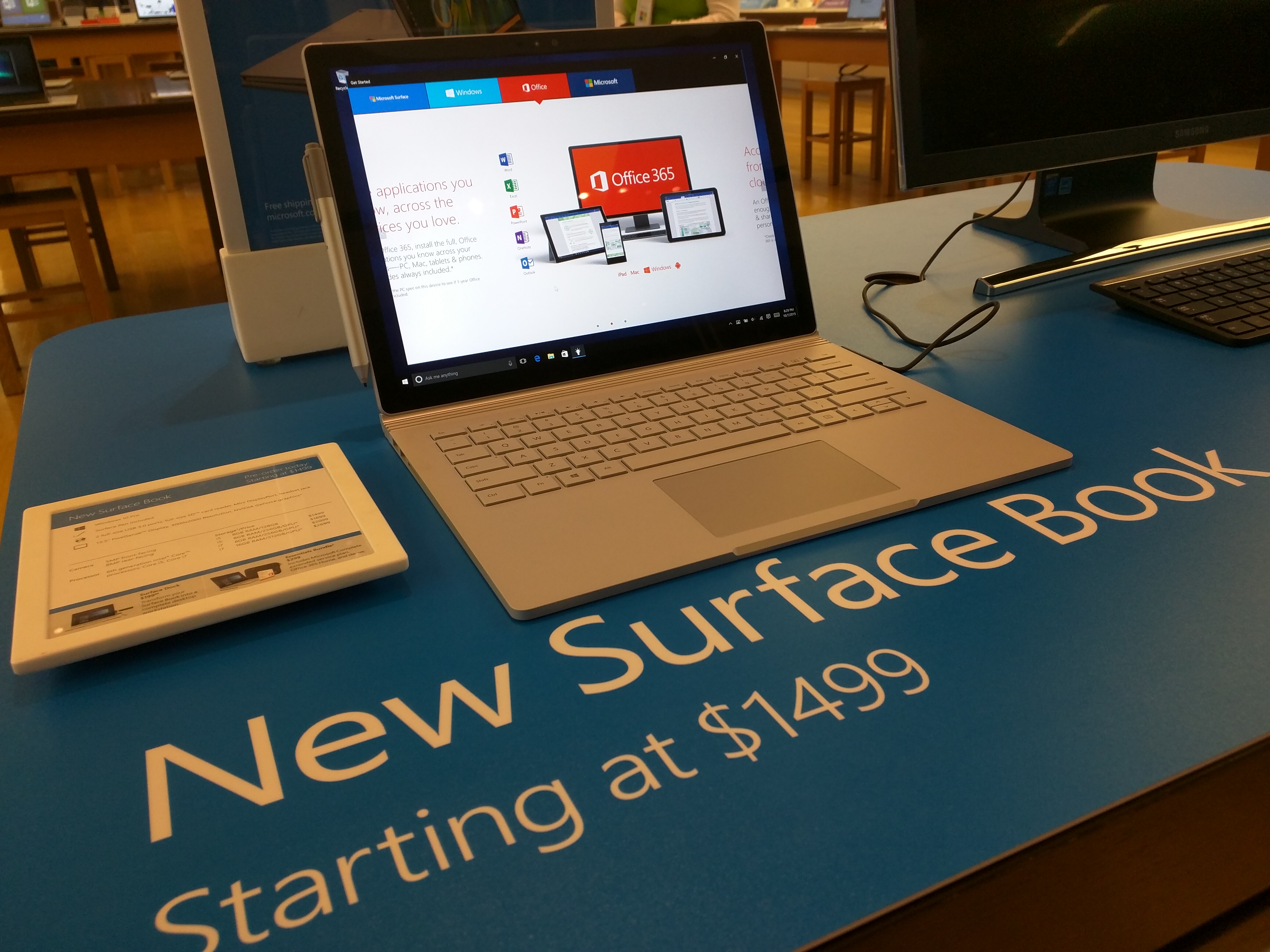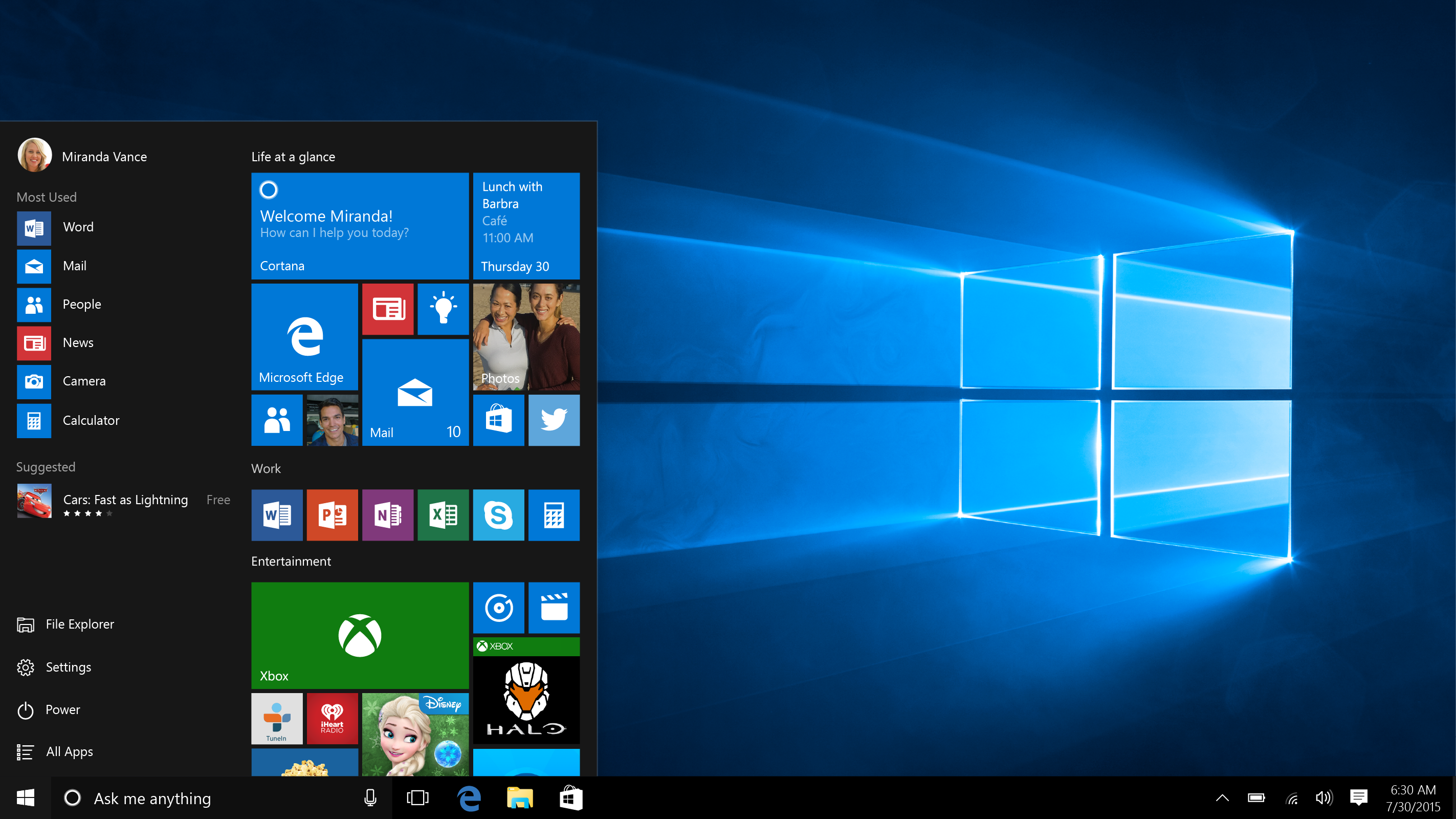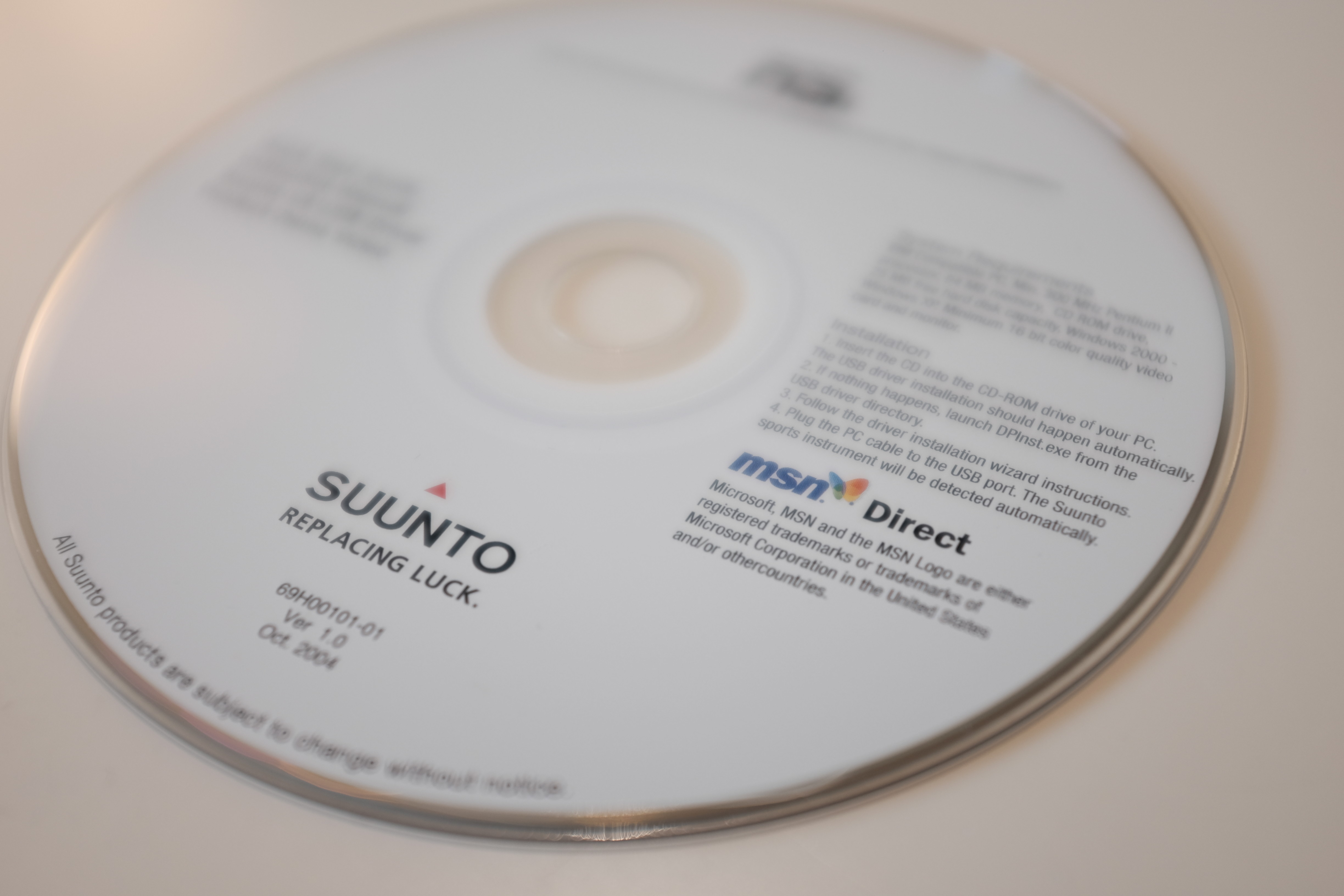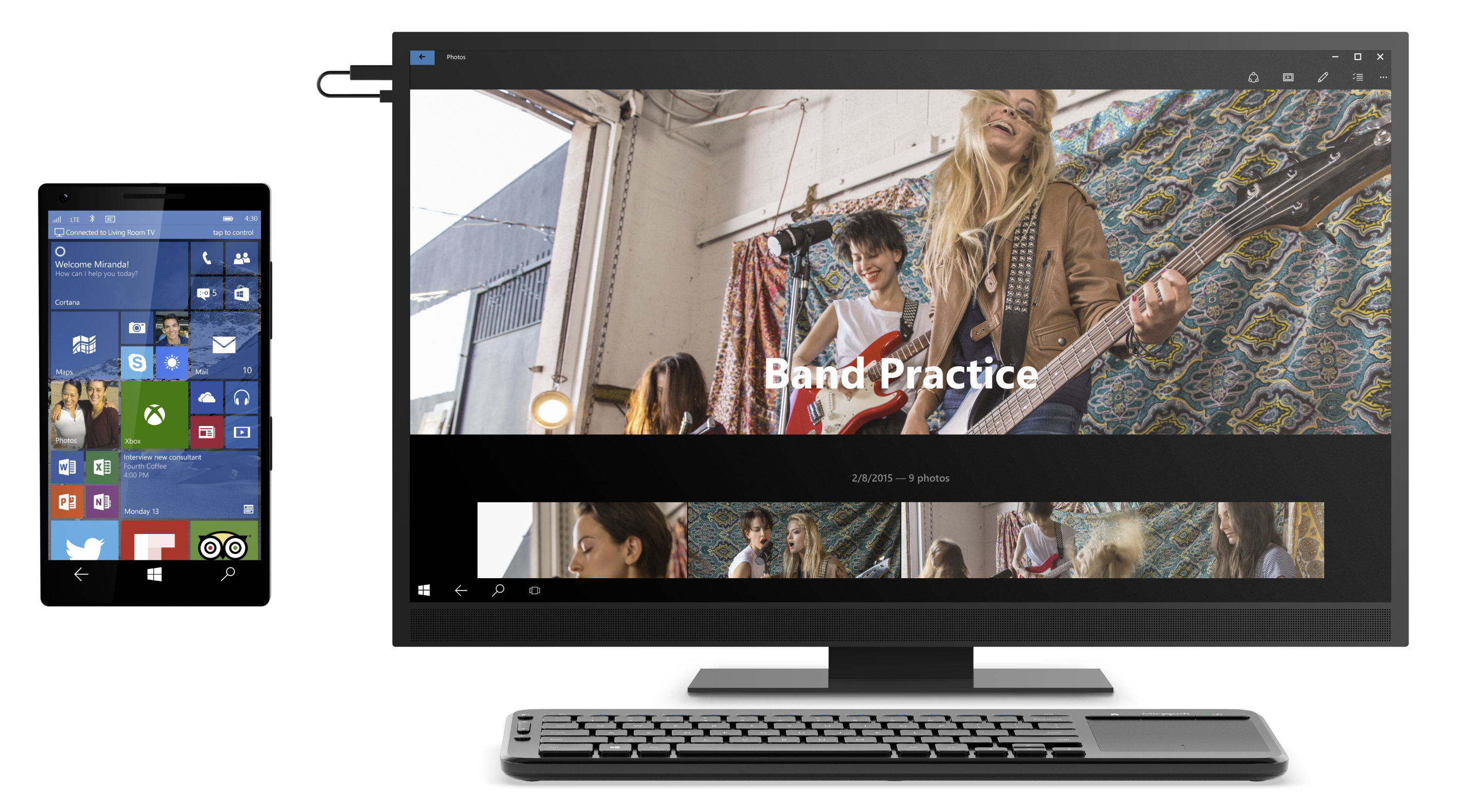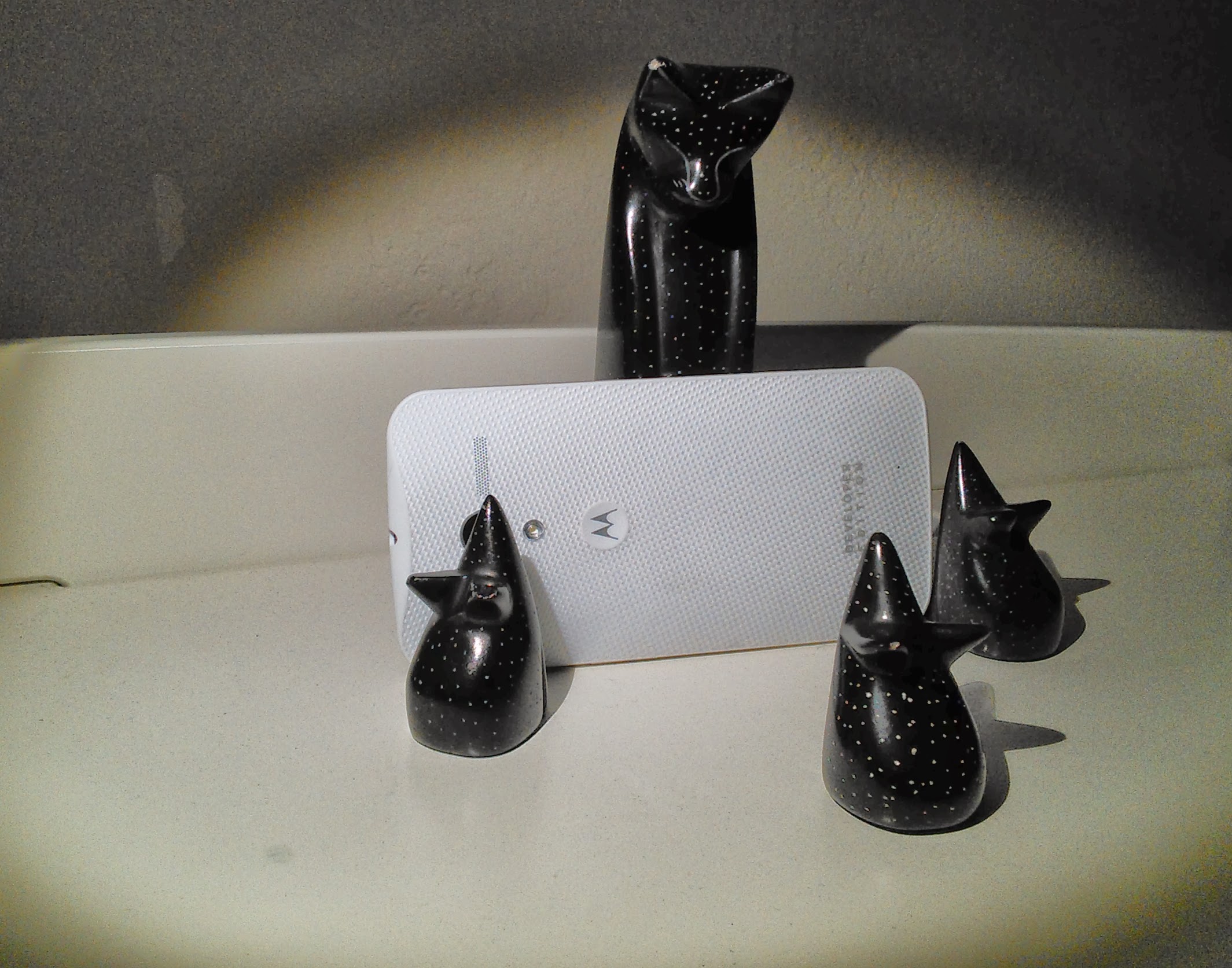This evening, after watching “The Martin”, which is superb, I walked over to my local Microsoft Store. Surprise. Surprise. The day following the big Surface reveal, the new tablet and laptop are on display. Preorders are underway now, and the new gear goes on sale October 26, 2015 (hehe, my twin sisters’ birthday).
Got to say that more as a matter of preference and budget, my first impression favors Surface Pro 4. Top-end SKU available this month sells for $1,499, with 6th-gen Intel Core i5 processor, 16GB RAM, 256GB hard drive, and Intel HD graphics 520. The fanless m3 chip model, with paltry 4GB memory, marks the low-end at $899. Custom-configured i7 Surface Pro 4 will be available from November 20 and cost as much as $2,699.
